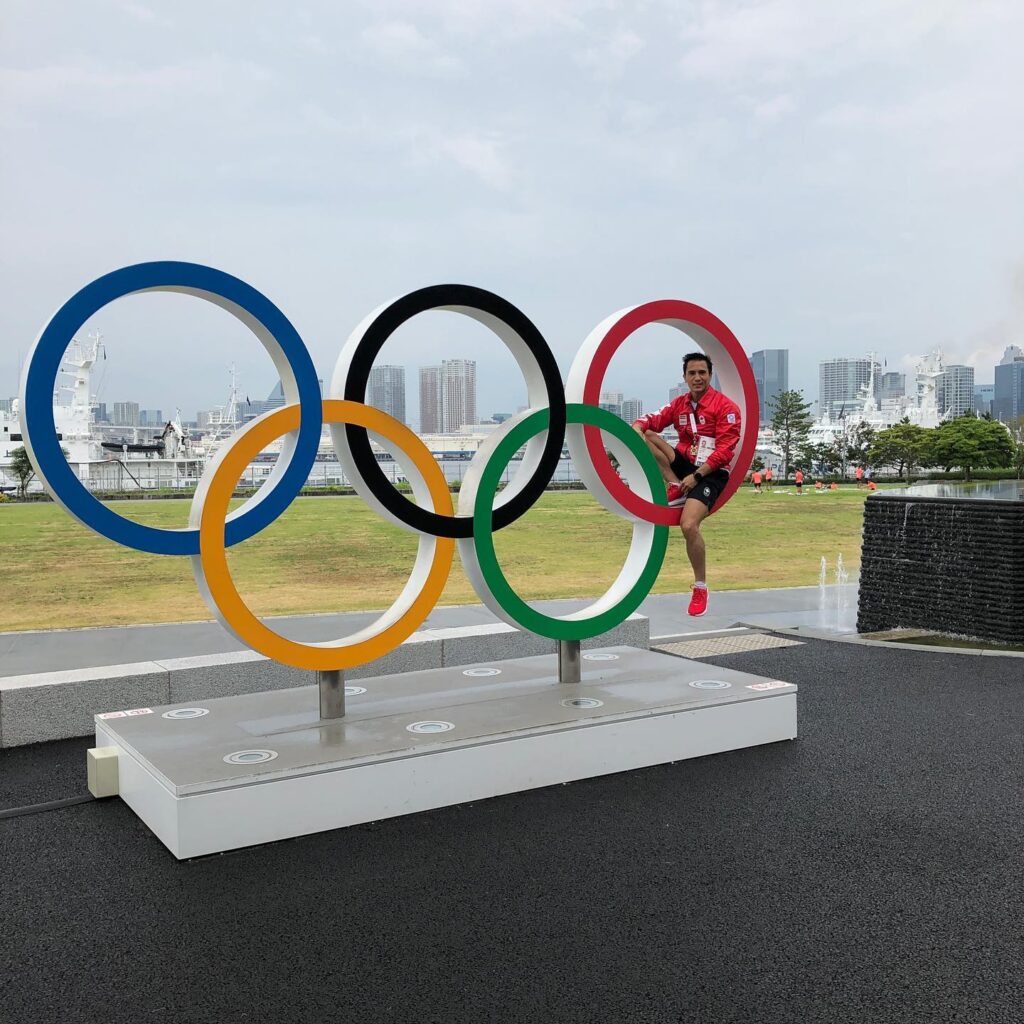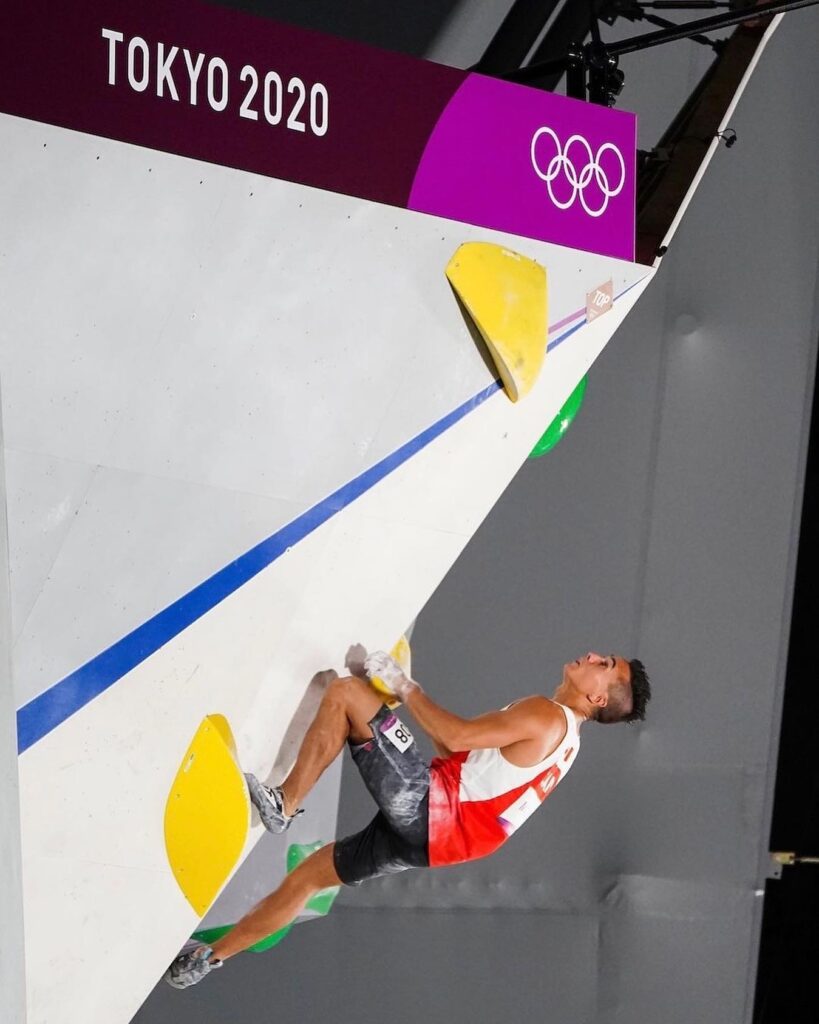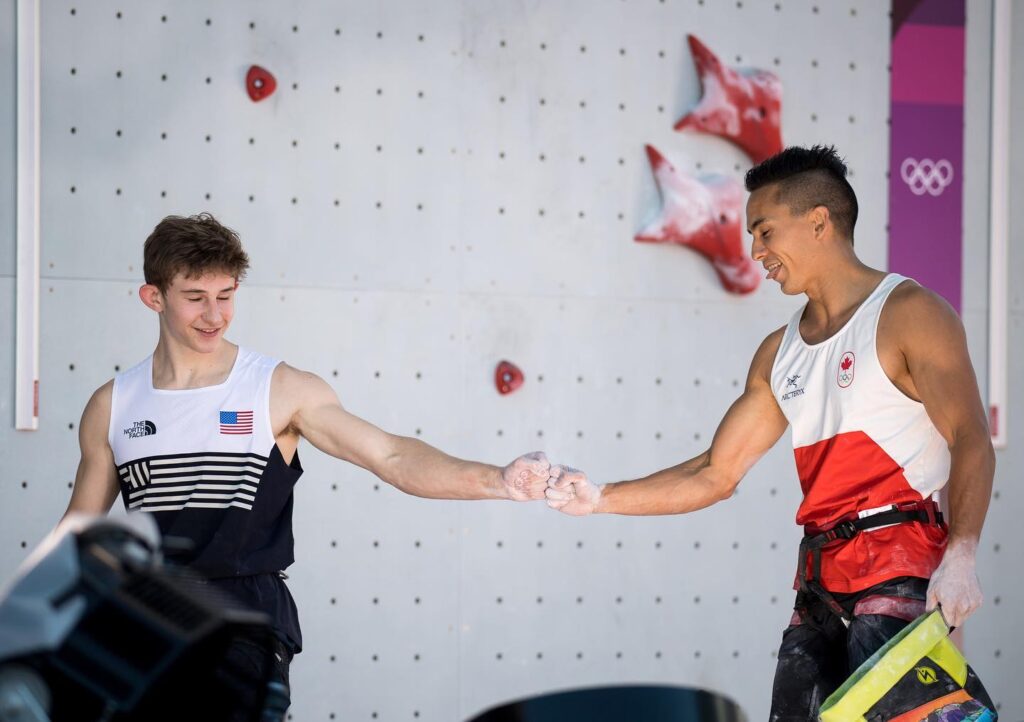Olympics Revealed
A behind the scenes look at the 2020 Tokyo Olympic Games as told by PD Olympic Climber, Sean McColl

Becoming an Olympian has been a lifelong goal, and my experience in Japan this past August is one of my best climbing achievements. I had become the first Canadian to qualify as an Olympic climber, and here I was, heading to the Olympic Games, thinking I knew what it would be like. I couldn’t have been more wrong.
I had spent years visualizing this moment and what it would be like to be in the Olympics. Like so many others, I never expected a global pandemic to become the driving force behind the world’s largest sporting celebration and never could have calculated the impact it would have on my Olympic journey.

Let’s just say that training for the Games was interesting. I’ve grown accustomed to training in Europe, where there is a strong focus on competition climbing. With travel restrictions around the world, I was left to train in the gyms of greater Vancouver. While there are some great gyms in Vancouver, they largely target fitness-minded climbers. To train at an elite level, you need a facility designed for elite athletes, and I found myself wanting and needing more. I decided to build my own wall and set my own routes. The cave I built provided some of the best training I found during COVID closures. Yet, I struggled to find my rhythm and get my head in the game, and I realized that my training wasn’t going well. At times, the cave felt like a prison. I was motivated for the Olympic Games, but training through Covid was no fun.
I qualified for the Tokyo 2020 Olympic Games with Alannah Yip, a childhood friend who grew up beside me in North Vancouver. Our COVID pod included Andrew Wilson, a former coach of mine whom Team Canada had selected to help us prepare. We had history and I knew we worked well together. Our pod was close-knit; we followed protocols, wore our masks all the time, and we acted as a team. Despite our best efforts, training just wasn’t a fun process like it normally is. Getting stronger and climbing are what I love. I pushed all my frustration and negative thoughts aside and worked to stay focused on going to the Olympics. In the final weeks leading up to the Games, I was reminded daily that a positive COVID test would mean my debut as an Olympic climber would be over before it ever started. It was a crazy cloud that obscured the light at the end of a very dark tunnel. My number one priority should have been on my training and preparation, and instead, it was about not getting COVID.
“We knew that these Olympics would be very different from Games past, and we knew what we had signed up for. The time and effort to become an Olympic climber is hard to describe, and it would all quickly end if we did not strictly follow the rules.”
Sean McColl, Olympic Climber
Arriving in Japan was surreal. We were allowed only on the team bus, in our rooms, in the dining hall, and at Aomi Urban Sports Park. That’s it. We weren’t allowed anywhere else or to see any of the other sports.
That said, when I arrived in the village for the first time, it was spectacular. The mutual respect between all the athletes and coaches was hands-down the best part. Everyone in the village had sacrificed to be there, to qualify, and to train through COVID. I was proud to be there, representing climbing and representing Canada! I quickly settled into a daily routine that included waking up at 10am, spitting in a tube to test for COVID, and getting food. I would take the bus to the sports park, train, stretch, take the bus back to the village, eat, and rest.
Competition day was a hell of a ride. I hadn’t seen my competitors in 18 months, and I didn’t know how I’d do against the field. I wasn’t as good as I needed to be. I just couldn’t train the way I needed to train, and I was not the climber I had been 18 months prior. I wasn’t nearly as good as I needed to be on that day in Tokyo. My Olympic journey consumed 2.5 crazy years, and it was over in a flash.

But, there was a silver lining to my Olympic experience. Many people don’t know that in addition to being an Olympic climber, I had another role in Tokyo. At the time, I was still President of the IFSC Athletes’ Commission, and we got the news that the President of the IOC, Mr. Thomas Bach, was planning to come to Aomi Urban Sports Park and watch the men’s finals. I got the opportunity to sit with Mr. Bach while watching the lead finals and explain what was happening on the wall. He caught on very quickly, and as Austrian climber Jakob Schubert began his route, he asked me how I thought he would do that night. I looked at my friend Jakob and said, “I think he will get to the top”. A few minutes later, Jakob lowered from the final draw, the only athlete to top the route, earning himself a Bronze medal at climbing’s Olympic debut.
Now at home back in Canada, it’s nice to reflect on my Olympic Journey. I am so grateful and happy that the Olympics actually happened and that I got to be a part of climbing’s debut. While it wasn’t my best day as a competition climber, it was my first time as an Olympic climber, and if given a choice to go through all of it again, I most certainly would.
